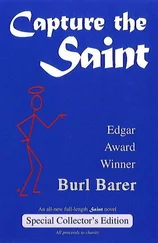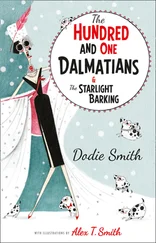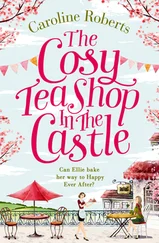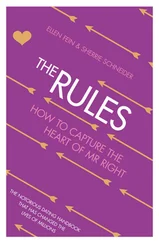Dodie Smith - I Capture the Castle
Здесь есть возможность читать онлайн «Dodie Smith - I Capture the Castle» весь текст электронной книги совершенно бесплатно (целиком полную версию без сокращений). В некоторых случаях можно слушать аудио, скачать через торрент в формате fb2 и присутствует краткое содержание. Жанр: Старинная литература, на русском языке. Описание произведения, (предисловие) а так же отзывы посетителей доступны на портале библиотеки ЛибКат.
- Название:I Capture the Castle
- Автор:
- Жанр:
- Год:неизвестен
- ISBN:нет данных
- Рейтинг книги:4 / 5. Голосов: 1
-
Избранное:Добавить в избранное
- Отзывы:
-
Ваша оценка:
- 80
- 1
- 2
- 3
- 4
- 5
I Capture the Castle: краткое содержание, описание и аннотация
Предлагаем к чтению аннотацию, описание, краткое содержание или предисловие (зависит от того, что написал сам автор книги «I Capture the Castle»). Если вы не нашли необходимую информацию о книге — напишите в комментариях, мы постараемся отыскать её.
I Capture the Castle — читать онлайн бесплатно полную книгу (весь текст) целиком
Ниже представлен текст книги, разбитый по страницам. Система сохранения места последней прочитанной страницы, позволяет с удобством читать онлайн бесплатно книгу «I Capture the Castle», без необходимости каждый раз заново искать на чём Вы остановились. Поставьте закладку, и сможете в любой момент перейти на страницу, на которой закончили чтение.
Интервал:
Закладка:
I told her there was nothing wrong with me but strong drink.
She giggled and blinked and said "Well, reely!" and I suddenly felt very world-worn and elderly in comparison with her.
Then she handed me my gym-dress and got me some hot water. After I
had washed I felt quite normal, except that the whole morning lay on my conscience in a dreary, shaming sort of way.
"I must dash home," I said.
"I'm half-an-hour late with Father's lunch already."
"Oh, your Father's at Scoatney again," said Miss Marcy.
"They're giving him a nice, thick steak." She had heard from Mrs.
Jakes, who had heard from the butcher, who had heard from the Scoatney cook.
"So you can stay and have your lunch with me.
Mrs. Jakes is going to send up enough for two."
She has her meals on trays, from the inn kitchen, but she keeps things she calls "extra treats" in the big mahogany corner-cupboard.
"I like to nibble these at night," she said as she was getting some biscuits out.
"I always wake up around two o'clock and fancy some thing to eat."
I had a flash of her lying in the wide, sagging bed, watching the
moonlit square of the lattice window while she crunched her biscuits.
"Do you lie awake long?" I asked.
"Oh, I generally hear the church clock strike the quarter. Then I tell myself to be a good girl and go back to sleep.
I usually make up some nice little story until I drop off."
"What sort of story ?"
"Oh, not real stories, of course. Sometimes I try to imagine what happens to characters in books- after the books finish, I mean. Or I
think about the interesting people I know--dear Rose shopping in
London, or Stephen being photographed by that kind Mrs. Fox.
Cotton. I love making up stories about people."
"Don't you ever make them up about yourself?"
She looked quite puzzled.
"Do you know, I don't believe I ever do his I suppose I don't find myself very interesting."
There was a thump on the door and she went to take the tray in.
Mrs. Jakes had sent up stew and apple pie.
"Oh, good," said Miss Marcy.
"Stew's so comforting on a rainy day."
As we settled down to eat, I said how extraordinary it must be not to find oneself interesting.
"Didn't you ever, Miss Marcy ?"
She thought, while she finished an enormous mouthful.
"I think I did when I was a girl. My dear Mother always said I was very self-centered. And so discontented!"
I said: "You aren't now. What changed you?"
"God sent me a real grief, dear." Then she told me that her parents had died within a month of each other, when she was seven teen, and how dreadfully she had felt it.
"Oh, dear, I couldn't believe the sun would ever shine again.
Then our local clergyman asked me to help with some children he was
taking into the country- and, do you know, it worked a miracle for me his I suppose that was the beginning of finding others more interesting than myself."
"It wouldn't work a miracle for me," I said, "--I mean, if I were ever unhappy."
She said she thought it would in the end; then asked me if I was
missing Rose much. I noticed she was looking at me rather searchingly, so I said "Oh yes," very casually and talked brightly about Rose's trousseau and how happy I was for her, until we heard children's voices under the window as they trooped back to school. Then Miss Marcy
jumped up and powdered her nose very white with a tiny powder-puff out of a cardboard box.
"It's singing this afternoon," she said.
"We always look forward to that."
I thought of the singing on May Day, and of Simon, so embarrassed and so kind, making his speech to the children.
Oh, lovely day- before he had proposed to Rose!
We went downstairs and I thanked Mrs.
Jakes for everything, including the loan of the cherry brandy. (a
shilling--and that was a reduced price. Drink is ruinous.) The rain
had stopped, but it was still very gray and chilly.
"I hope it cheers up by Saturday," said Miss Marcy, as we dodged the drips from the chestnut tree, "because I'm giving the children a picnic. I suppose, dear, you couldn't find time to help me? You'd
think of such splendid games."
"I'm afraid I'm a bit busy at the castle," I said quickly--the children were screaming over some game in the playground and I didn't feel I
could stand an afternoon of that.
"How thoughtless of me! Of course you have your hands full at the week-ends--with the boys home to be looked after as well as your
Father. Perhaps you have some free time in these long, light evenings-some of the old folks do love to be read to, you know."
I stared at her in astonishment. Neither Rose nor I have ever gone in for that sort of thing; incidentally, I don't believe the villagers
really like good works being done to them. Miss Marcy must have
noticed my expression because she went on hurriedly: "Oh, it was just an idea. I thought it might take you out of yourself a bit-if you're
finding life dull without Rose."
"Not really," I said, brightly--and heaven knows, one can't call misery dull, exactly. Dear Miss Marcy, little did she know I had more than
missing Rose on my mind. Just then, some children came up with a frog in a cardboard box, so she said good-bye and went off with them to the pond to watch it swim.
When I got home, the castle was completely deserted, even About and Hcl were out. I felt guilty, because they had had no dinner, and called
and called them but they didn't come. My voice sounded despairing and I suddenly felt lonelier than I ever remember feeling, and more deeply sad. Everything I looked at was gray--gray water in the moat, great
gray towering walls, remote gray sky;
even the wheat, which was between green and gold, seemed colorless.
I sat on the bedroom window-seat, staring woodenly at Miss Blossom.
Suddenly her voice spoke, in my head: "You go to that:
picnic, dearie."
I heard myself ask her why.
"Because little Miss Blink eyes is right--it would take you out of yourself. And doing things for others gives you a lovely glow."
"So does port," I said cynically.
"That's no way to talk, not at your age," said Miss Blossom.
"Though I must say you'd have made a cat laugh, walking about in your drawers with that cherry brandy. Fancy you having a taste for
drink!"
"Well, I can't drown my sorrows in it often," I told her, "it's too expensive. Good works are cheaper."
"So's religion," said Miss Blossom.
"And some say that's best of all. You could get it all right if you went on trying, you know-you being so fond of poetry."
Now it is very odd, but I have often told myself things through Miss
Blossom that I didn't know I knew.
When she said that about my "getting" religion, I instantly realized that she was right--and it came as such a surprise to me that I thought
"Heavens, have I been converted?" I soon decided that it wasn't quite so drastic as that; all that had come to me, really, was--well, the
feasibility of conversion. I suddenly knew that religion,
God-something beyond everyday life--was there to be found, provided one is really willing. And I saw that though what I felt in the church
was only imagination, it was a step on the way; because imagination
itself can be a kind of willingness--a pretence that things are real, due to one's longing for them. It struck me that this was somehow tied up with what the Vicar said about religion being an extension of
art--and then I had a glimpse of how religion really can cure you of
sorrow; somehow make use of it, turn it to beauty, just as art can make sad things beautiful.
I found myself saying: "Sacrifice is the secret --you have to sacrifice things for art and it's the same with religion; and then the sacrifice turns out to be a gain." Then I got confused and I couldn't hold on to what I meant--until Miss Blossom remarked:
Читать дальшеИнтервал:
Закладка:
Похожие книги на «I Capture the Castle»
Представляем Вашему вниманию похожие книги на «I Capture the Castle» списком для выбора. Мы отобрали схожую по названию и смыслу литературу в надежде предоставить читателям больше вариантов отыскать новые, интересные, ещё непрочитанные произведения.
Обсуждение, отзывы о книге «I Capture the Castle» и просто собственные мнения читателей. Оставьте ваши комментарии, напишите, что Вы думаете о произведении, его смысле или главных героях. Укажите что конкретно понравилось, а что нет, и почему Вы так считаете.












